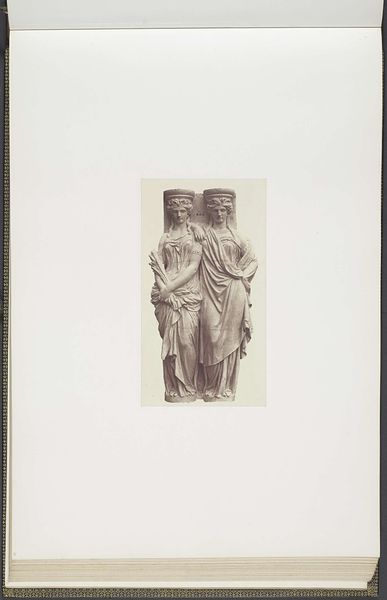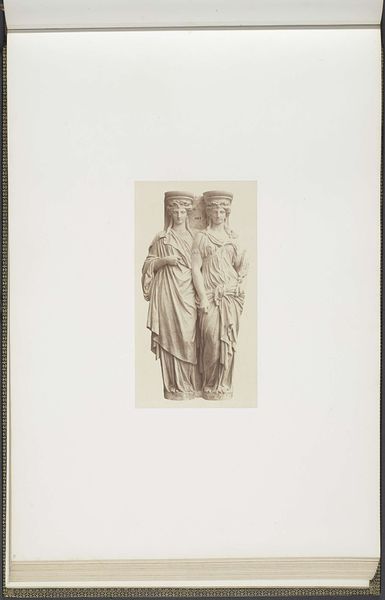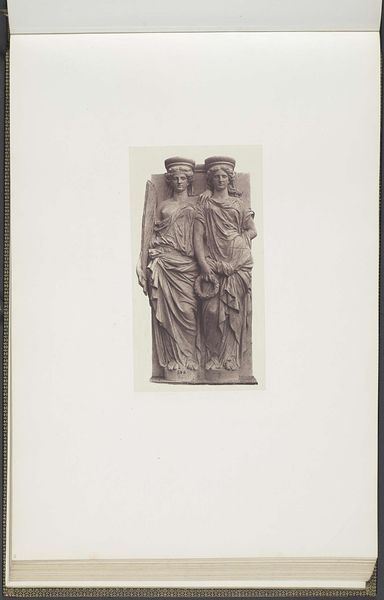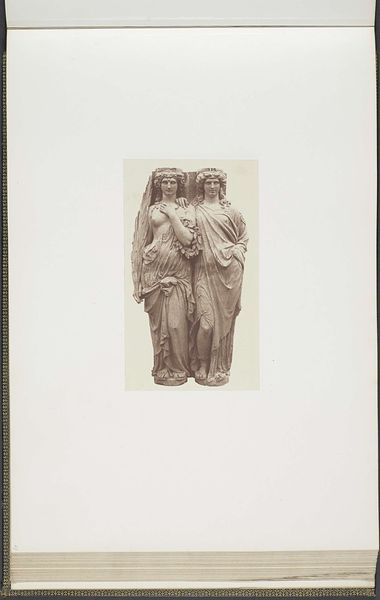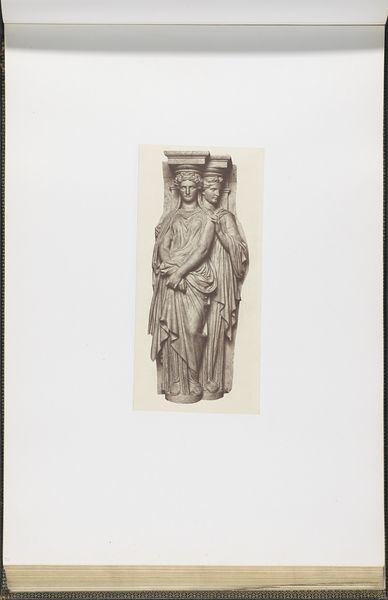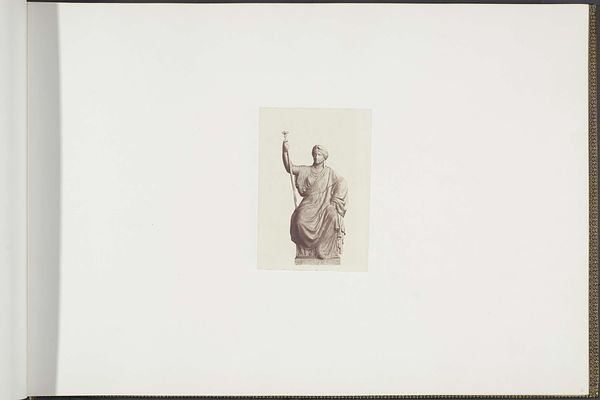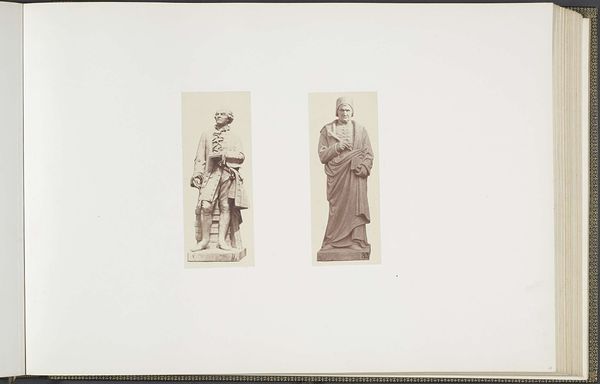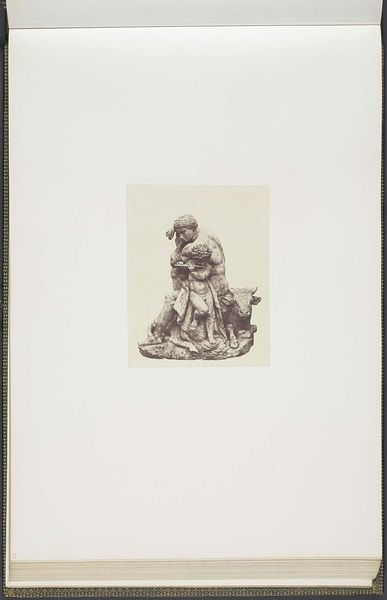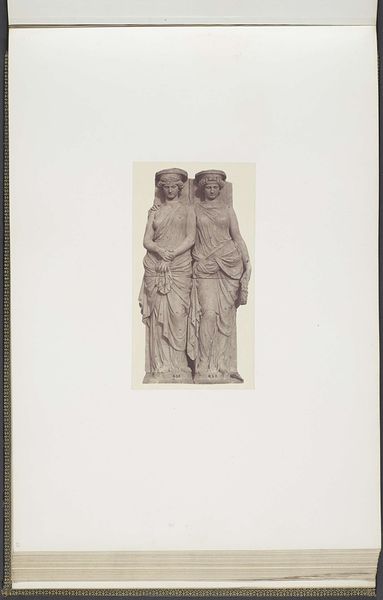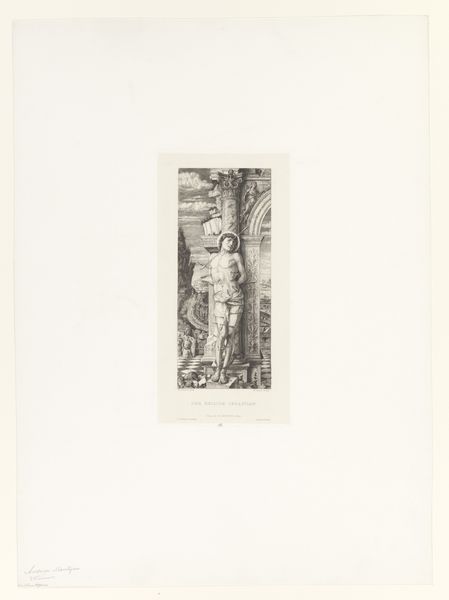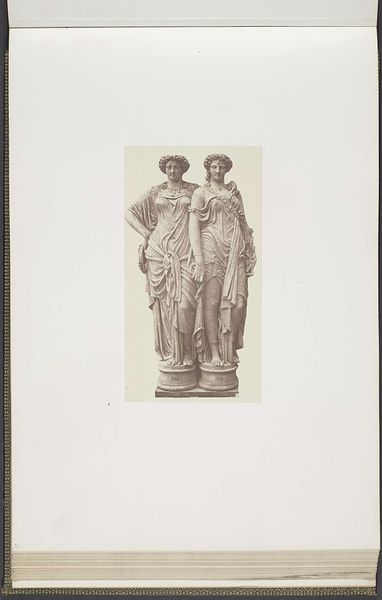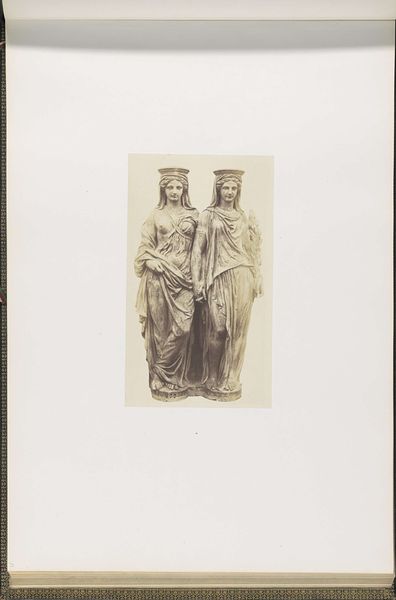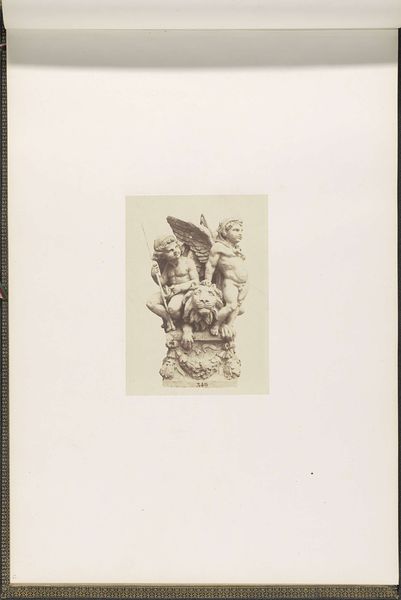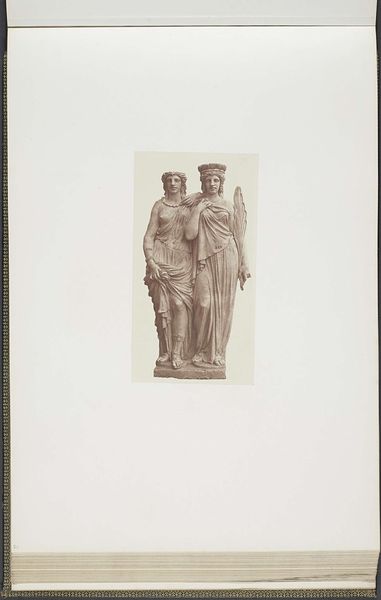
Gipsmodellen voor kariatiden op het Palais du Louvre door Francisque Duret c. 1855 - 1857
0:00
0:00
edouardbaldus
Rijksmuseum
drawing, paper, pencil
#
portrait
#
drawing
#
paper
#
pencil
#
academic-art
Dimensions: height 382 mm, width 560 mm
Copyright: Rijks Museum: Open Domain
Edouard Baldus captured this image of plaster models for caryatids at the Palais du Louvre in France sometime in the mid-19th century. The photograph depicts models created by Francisque Duret, intended to adorn the Louvre, an institution emblematic of French cultural power and artistic heritage. Baldus, known for his architectural photography, here directs our attention to the intersection of art, architecture, and national identity. Caryatids, figures of women used as supporting columns, evoke classical antiquity, linking France to a lineage of cultural authority. The Louvre, as a site of both royal power and public art, represents the complex relationship between art, the state, and the public. Photographs like this serve as historical documents, preserving not only the image of the sculptures, but also offering insight into the cultural values and institutional structures of 19th-century France. Art historians consult archival materials to understand how institutions like the Louvre shape artistic production and the reception of art. By examining these sources, we can better understand the social and political context in which art is created and consumed.
Comments
No comments
Be the first to comment and join the conversation on the ultimate creative platform.
